All About Workflow Nodes
A node can be considered a fundamental building block of a workflow. The workflow provides a variety of nodes to support the implementation of both core business processes and supplementary functions. All available nodes are organized in the palette located on the right side of the workflow editor.
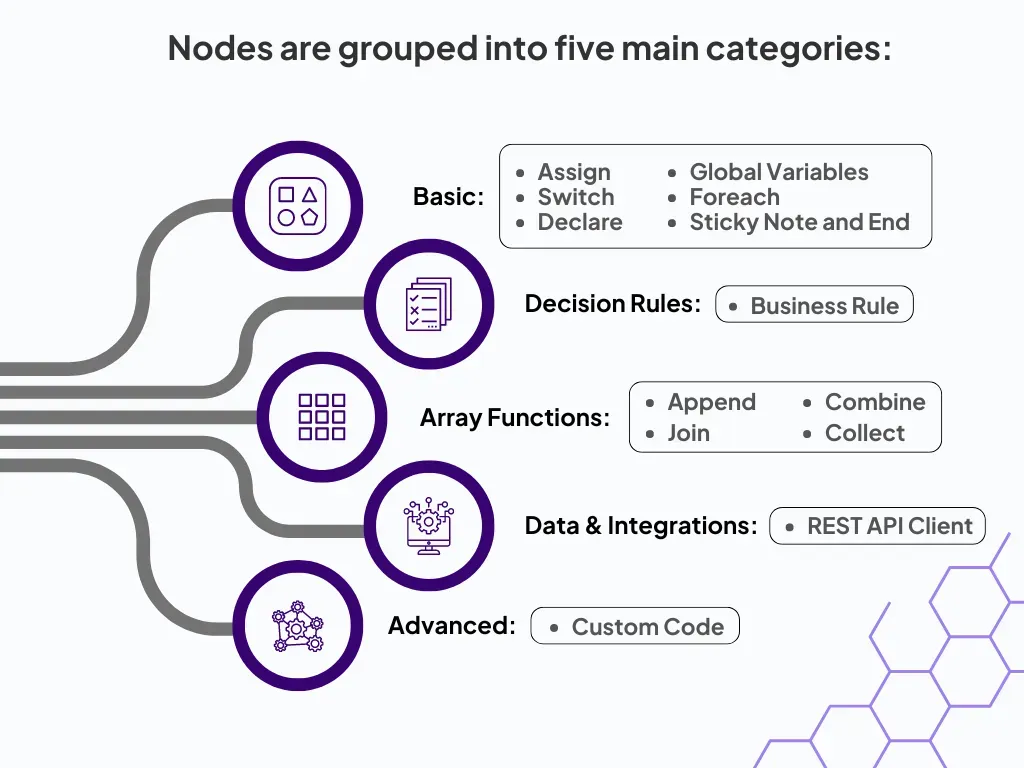
Each category contains specialized nodes, you can find more details about this in our documentation.
In this article, we will focus on exploring the Business Rule Node in detail.
Business Rule Node
The Business Rule Node enables users to integrate and execute various types of business rules that can be created and managed within DecisionRules. The available rule types include:
Additionally, you can utilize an entire Workflow as a Business Rule Node, enabling even more complex decision-making processes.
Modes
The Business Rule Node operates in two modes:
- Static Mode
- Dynamic Mode
Static Mode
In Static Mode, users can select a specific business rule from a dropdown list that displays all available rules and their versions within your space.
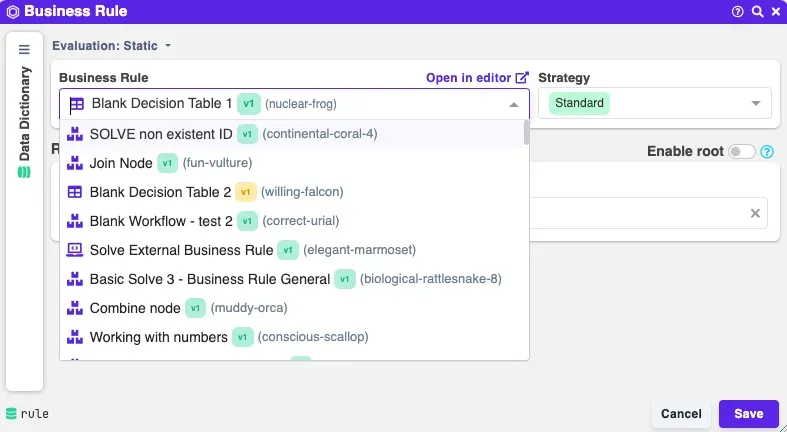
Dynamic Mode
In Dynamic Mode, users can select a business rule and its version dynamically, based on runtime conditions. This allows for greater flexibility by enabling the system to adapt the rule selection to the specific context of each workflow execution.
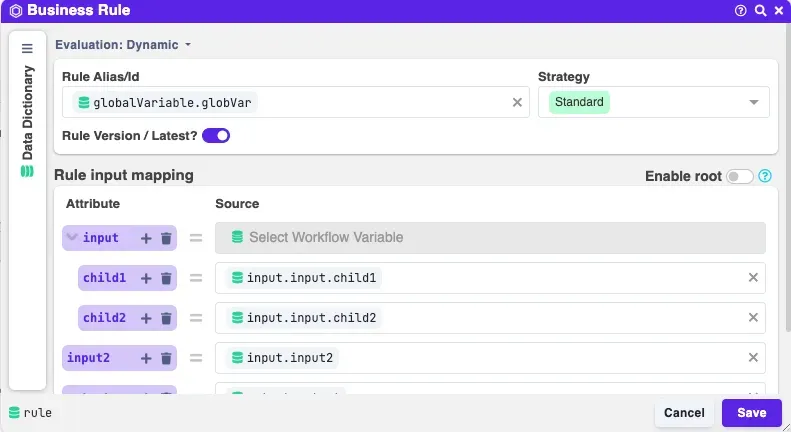
Strategies
You can apply any type of rule as a business rule within the Workflow, along with the option to choose a strategy for rule execution. The available strategies vary depending on the rule type selected.
For Decision Table rules, you can choose from three strategies:
- Standard: Returns an array of results from the evaluated business rule.
- First Match: Returns a single output object containing the first matching result.
- Evaluate All: Similar to the Standard strategy, but explicitly evaluates all rows within the decision table.
For all other rule types, the available strategy is:
- Standard
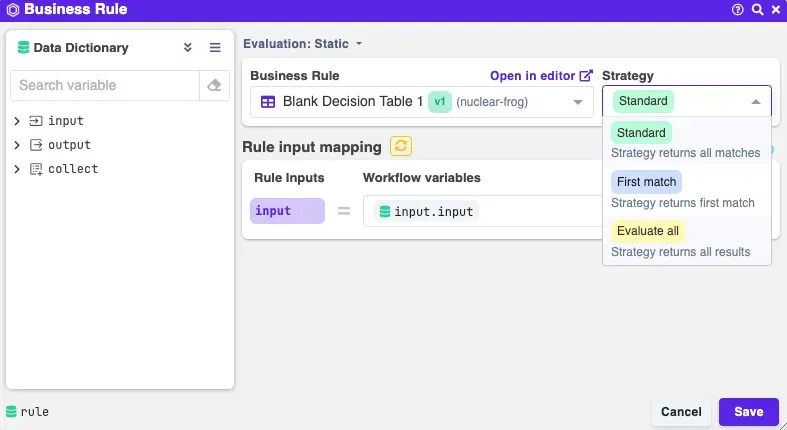
For more details on our rule-solving strategies, please refer to our documentation.
Use cases for Business Rule Node
The Business Rule Node serves as one of the core components of the Workflow, allowing users to incorporate business logic into complex workflow models. To summarize, here are some key applications of the Business Rule Node:
- Decision Automation: Create and integrate business rules of various types to model both simple and complex business processes, chaining these rules within workflows as needed.
- Dynamic Rule Selection: Need to select a rule version based on runtime conditions? The Business Rule Node enables dynamic rule selection based on prior workflow logic.
- Batch Processing: Supported when using the Standard and Evaluate All strategies, allowing for the processing of multiple data sets in one execution.
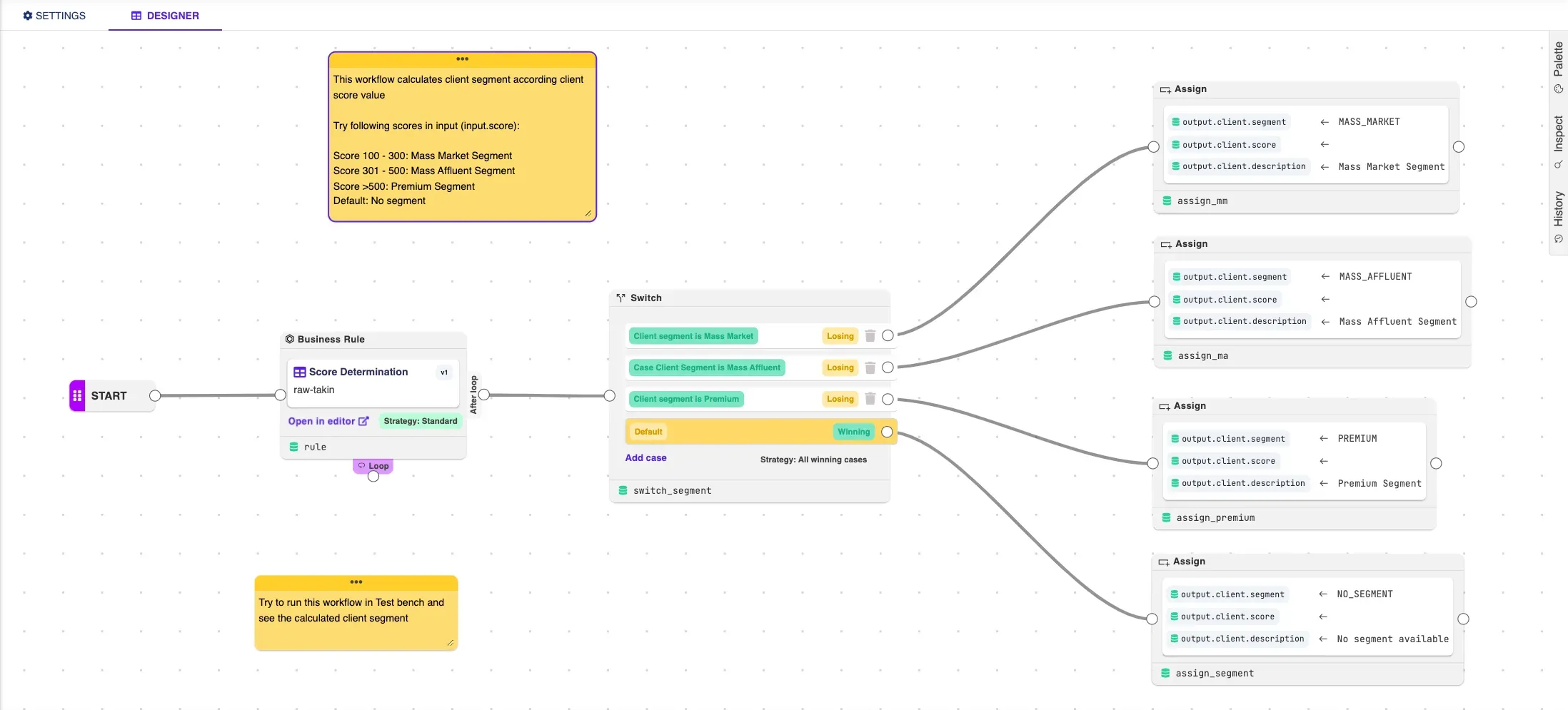
Conclusions
The Workflow feature enables the creation of complex, automated processes. One of its key components is the Business Rule Node, which connects specific business rules by allowing users to specify the version either manually or dynamically. By leveraging our well-established solving strategies, you can seamlessly chain multiple business rules together, or integrate them with other node types, to build sophisticated workflows with ease.

Tereza Pudilová
Fullstack Developer
